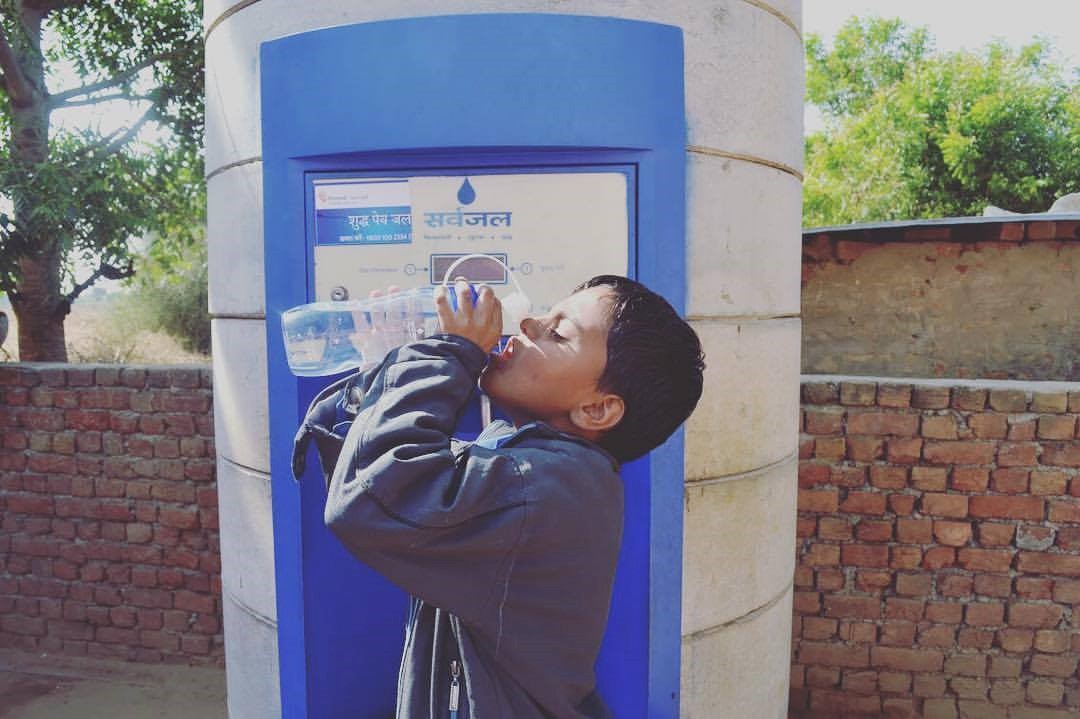
AHMEDABAD – The United Nations’ World Water Report for 2015 said, “Problems of poverty are, on most occasions, inextricably linked with those of water – its availability, its proximity, its quantity, and its quality.”
Piramal Sarvajal is a mission-driven social enterprise dedicated designing, manufacturing and providing clean, safe sources of drinking water for communities across the nation of India. The company endeavors to utilize the latest technologies and innovations to create the greatest impact for the lowest cost. Its premier solution is the development of solar-powered, cloud-connected water ATMs. Each ATM is connected to its own filtration and purification system.
The company operates a market-based, franchise business model that is sustainable in both urban and rural areas. The ATMs dispense water on a pay-per-use system using coins or a debit card. The franchisee manages the local operation. Sarvajal uses cloud technology to manage the operations system-wide. Franchises are operated in partnership with either a local entrepreneur or a local Panchayat/ Community-Based Organization. The franchise model helps to create new, sustainable commercial ventures within the community in addition to providing access to clean drinking water 24 hours a day, every day.
The company was founded in 2008 with seed money from the Piramal Group. The company receives funding and support from national and international benefactors including Nestle, Fullerton India, Mercedes Benz, Standard Charter Bank, Tata Motors, HSBC, and the Michael and Susan Dell Foundation.
March 22nd is the United Nations’ annual World Water Day. According to Sarvajal, “Even today, three-quarters of India still drinks untreated water.” This exposes millions of people to diseases like dysentery, diarrhea, or permanent fluorosis – and their debilitating results, including death.
UNESCO estimates that 1.9 billion people live in “potentially severe water-scarce areas.” Given current global conditions, this number is not expected to decline significantly. Rather, UNESCO projects that the number of people residing in water-scarce areas could reach three billion.
Sarvajal has established over 1,000 drinking water stations across 16 Indian states. These stations provide affordable, safe water to more than 4.3 million individuals daily.
Sources:
- World Water Day Factsheet
- Inhabitat News, Sarvajal’s Solar Powered Water ATM Franchises Provide Clean Water in India
- Piramal Sarvajal
- India Waterportal
Image Source:
- Facebook, Make the Planet Great Again photo shared by Piramal Sarvajal




